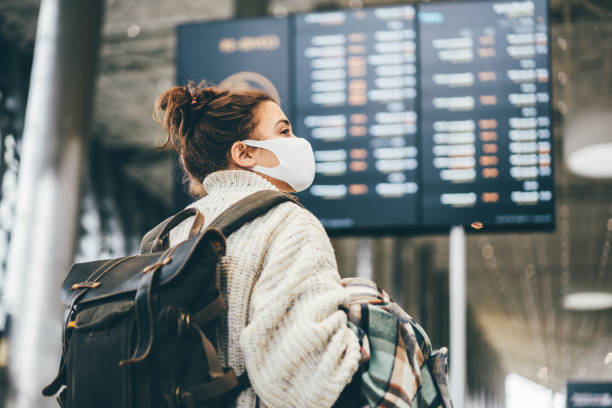Traveling During a Crisis: How to Stay Safe and Make the Most of Uncertain Times
Traveling during a crisis—be it a health emergency, political unrest, or a natural disaster—can be stressful and unpredictable. However, with the right preparation and mindset, you can navigate such challenges and still have a safe, fulfilling travel experience. This guide provides practical advice on how to stay safe, adapt your plans, and find reliable resources when your travels are affected by crises.
1. Stay Informed: Monitor the Situation
The first step in traveling during uncertain times is staying well-informed. Whether it’s a global pandemic, civil unrest, or a natural disaster, knowledge is power.
How to Stay Informed:
- Government Travel Advisories: Always check official travel advisories from your government. Websites like the U.S. Department of State, UK Foreign Travel Advice, or the Canadian Government’s travel page provide real-time updates on safety, entry restrictions, and advice for travelers.
- Local News and Social Media: Keep an eye on local news and social media for real-time updates. Local platforms like Twitter or regional news apps can give you the latest on unfolding events or any safety concerns in the area.
- Crisis Monitoring Apps: Apps like Sitata or Smart Traveler provide alerts about health outbreaks, political instability, or natural disasters specific to your location.
Travel Tip: Set up Google Alerts for news related to your destination, or follow reliable social media accounts that track crisis events in real-time.
2. Be Prepared to Alter Your Plans
In times of crisis, flexibility is crucial. You may need to adjust your itinerary or even cancel parts of your trip. Planning ahead can help you make quick decisions if your travel plans are disrupted.
How to Adapt Your Plans:
- Travel Insurance: Always invest in comprehensive travel insurance that covers crises such as health emergencies, natural disasters, or political unrest. Make sure it includes trip cancellations, medical evacuations, and emergency medical expenses.
- Flexible Booking Options: Look for airlines, hotels, and tour operators that offer flexible cancellation policies or free changes to your bookings. Many providers have adapted to the unpredictability of crises by allowing free cancellations or rescheduling.
- Backup Plans: Have a list of alternative destinations or routes if your planned location becomes unsafe or inaccessible. For example, if flights are canceled due to political unrest, you might have nearby countries or cities you could visit instead.
Travel Tip: If you must change your plans last minute, apps like Skyscanner or Google Flights allow you to easily adjust flights or find new routes.
3. Prioritize Your Health and Safety
Your safety and health should always be your top priority when traveling during a crisis, especially in times of a health emergency or natural disaster.
Health Safety Tips:
- Stay Updated on Health Alerts: For health crises (like pandemics), check resources like the World Health Organization (WHO) or the Centers for Disease Control and Prevention (CDC) for the latest advice on vaccinations, safety measures, and any travel restrictions or quarantine requirements.
- Personal Protection: If you’re in an area with health concerns, make sure to carry masks, hand sanitizers, and any other personal protective equipment (PPE) recommended by health authorities. For example, during a flu outbreak or pandemic, you might need to wear a mask in public spaces or maintain social distancing.
- Medication and Vaccinations: Bring a well-stocked first aid kit that includes necessary medications, prescription drugs, and over-the-counter remedies. Additionally, ensure you’re up-to-date on any vaccinations required for your destination, especially if traveling to areas with known outbreaks.
Safety During Natural Disasters:
- Know the Local Emergency Numbers: In case of a natural disaster (earthquake, hurricane, etc.), know the local emergency numbers and evacuation procedures.
- Accommodation Location: Choose accommodations that are located in safe, stable areas, and avoid places that are prone to flooding, earthquakes, or other natural hazards.
Travel Tip: Have an emergency contact list with details of local hospitals, embassies, and your insurance provider.
4. Stay Connected with Your Network
Staying in touch with loved ones, your embassy, and local authorities is essential when traveling during a crisis.
How to Stay Connected:
- Share Your Itinerary: Let family or friends know your travel plans, especially if you’re going to a region that might be affected by a crisis. Share your hotel details, flight information, and emergency contact numbers.
- Embassy Registration: Consider registering with your country’s embassy or consulate if traveling in a region prone to crisis situations. Many governments offer embassy registration services, which allow them to send you important updates and contact you in case of emergencies.
- Check-In Regularly: Keep in touch with your family, friends, or travel companions, and check in at least once a day, especially if conditions are unstable.
Travel Tip: Set up a group chat with family or friends to share updates, or use apps like WhatsApp to communicate internationally in case of local network outages.
5. Consider Alternative Travel Modes
In times of crisis, especially during events like natural disasters or political unrest, transportation may be disrupted. It’s important to have flexible plans when it comes to getting around.
Transportation Tips:
- Avoid High-Risk Areas: Stay away from regions affected by unrest, protests, or natural disasters, and keep an eye on local news to avoid areas with poor safety conditions.
- Alternative Routes: If air travel is disrupted, consider other forms of transport, such as trains, buses, or even private drivers for more flexibility. Be aware of possible delays or travel restrictions.
- Flexible Flight Plans: If you’re already traveling, check for alternative routes and backup flights. Flight cancellation or delay insurance can help with rebooking costs.
Travel Tip: Plan for delays and give yourself extra time to reach your destination, especially when transportation is unpredictable due to the crisis.
6. Focus on the Bigger Picture: Mindset and Flexibility
While navigating a crisis can be daunting, maintaining a positive, flexible attitude will help you adapt to changing circumstances. View any disruptions as part of the adventure, and stay calm when unexpected situations arise.
Mindset Tips:
- Stay Calm: Crises can lead to panic, but try to keep a level head and make decisions based on facts and safety. If you need to adjust your plans, do so methodically without letting stress take over.
- Embrace Flexibility: Embrace the unpredictability of travel during a crisis. You might find new experiences and opportunities that you would not have considered under normal circumstances.
- Don’t Hesitate to Change Plans: If the situation becomes too risky, don’t hesitate to cancel or postpone your trip. Sometimes, it’s safer and more cost-effective to cut your losses and wait until the crisis subsides.
Travel Tip: Practice mindfulness and try to stay in the moment—focus on what you can control and take steps to stay safe, rather than getting bogged down by uncertainty.
7. Finding Reliable Resources During a Crisis
Having access to trustworthy information during a crisis is crucial. Follow the right channels and use technology to get the best, most up-to-date advice.
Reliable Resources:
- Official Government Websites: Refer to government websites for real-time travel advisories and crisis updates. Your embassy or consulate is a great resource for safety and evacuation advice.
- Crisis Communication Apps: Download apps like CrisisGo, Red Cross, or Global Rescue for real-time alerts and emergency services.
- Local Authorities and NGOs: In case of a crisis, local authorities and humanitarian organizations (like the Red Cross) can provide valuable resources and instructions on how to stay safe.
Travel Tip: Use offline maps or emergency apps to navigate in case of service disruptions. Apps like Maps.me or Google Maps allow offline navigation if cellular data is unavailable.
Travel with Caution and Awareness
Traveling during a crisis can be challenging, but by staying informed, flexible, and prepared, you can safely navigate difficult situations and still enjoy your journey. Always prioritize your safety, keep your options open, and use reliable resources to stay up to date on the situation. With a calm and flexible approach, you can make the most of uncertain times and adapt to whatever comes your way.
Safe travels, and may your next adventure be a secure and fulfilling one—no matter the circumstances! 🌍✈️


